Jorge Guevara
Enhancing operational wind downscaling capabilities over Canada: Application of a Conditional Wasserstein GAN methodology
Dec 09, 2024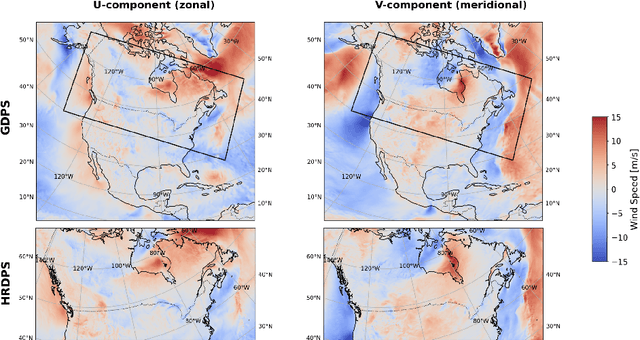
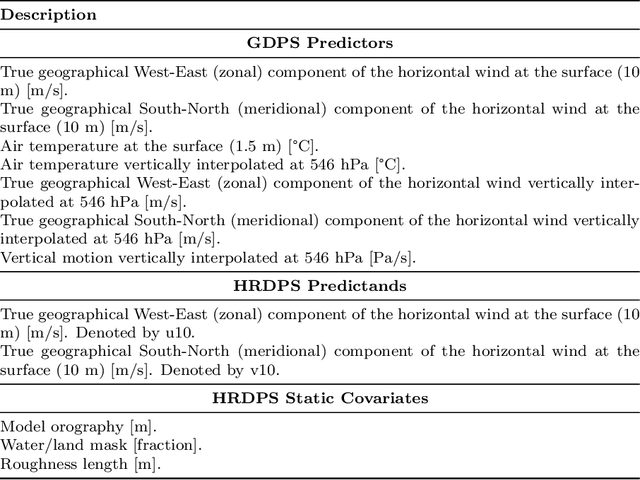


Abstract:Wind downscaling is essential for improving the spatial resolution of weather forecasts, particularly in operational Numerical Weather Prediction (NWP). This study advances wind downscaling by extending the DownGAN framework introduced by Annau et al.,to operational datasets from the Global Deterministic Prediction System (GDPS) and High-Resolution Deterministic Prediction System (HRDPS), covering the entire Canadian domain. We enhance the model by incorporating high-resolution static covariates, such as HRDPS-derived topography, into a Conditional Wasserstein Generative Adversarial Network with Gradient Penalty, implemented using a UNET-based generator. Following the DownGAN framework, our methodology integrates low-resolution GDPS forecasts (15 km, 10-day horizon) and high-resolution HRDPS forecasts (2.5 km, 48-hour horizon) with Frequency Separation techniques adapted from computer vision. Through robust training and inference over the Canadian region, we demonstrate the operational scalability of our approach, achieving significant improvements in wind downscaling accuracy. Statistical validation highlights reductions in root mean square error (RMSE) and log spectral distance (LSD) metrics compared to the original DownGAN. High-resolution conditioning covariates and Frequency Separation strategies prove instrumental in enhancing model performance. This work underscores the potential for extending high-resolution wind forecasts beyond the 48-hour horizon, bridging the gap to the 10-day low resolution global forecast window.
A comparative study of stochastic and deep generative models for multisite precipitation synthesis
Jul 16, 2021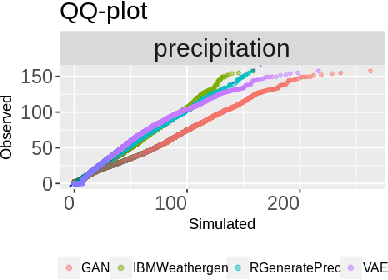


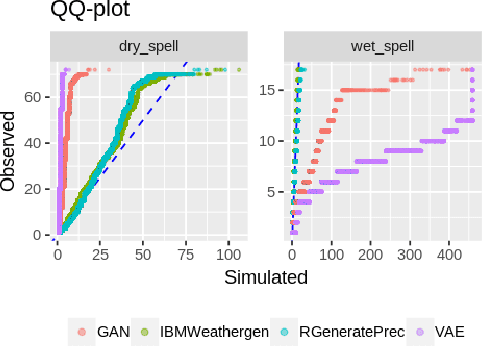
Abstract:Future climate change scenarios are usually hypothesized using simulations from weather generators. However, there only a few works comparing and evaluating promising deep learning models for weather generation against classical approaches. This study shows preliminary results making such evaluations for the multisite precipitation synthesis task. We compared two open-source weather generators: IBMWeathergen (an extension of the Weathergen library) and RGeneratePrec, and two deep generative models: GAN and VAE, on a variety of metrics. Our preliminary results can serve as a guide for improving the design of deep learning architectures and algorithms for the multisite precipitation synthesis task.
A modular framework for extreme weather generation
Feb 05, 2021
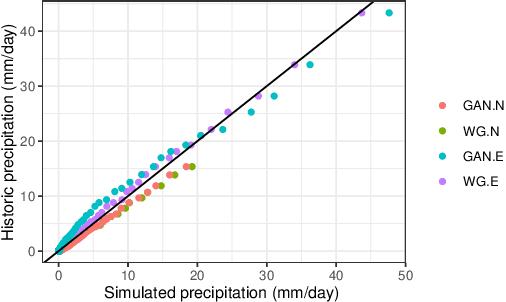
Abstract:Extreme weather events have an enormous impact on society and are expected to become more frequent and severe with climate change. In this context, resilience planning becomes crucial for risk mitigation and coping with these extreme events. Machine learning techniques can play a critical role in resilience planning through the generation of realistic extreme weather event scenarios that can be used to evaluate possible mitigation actions. This paper proposes a modular framework that relies on interchangeable components to produce extreme weather event scenarios. We discuss possible alternatives for each of the components and show initial results comparing two approaches on the task of generating precipitation scenarios.
Kernels on fuzzy sets: an overview
Jul 30, 2019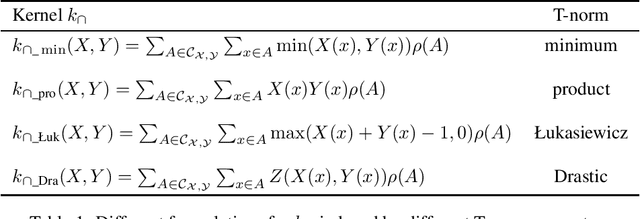
Abstract:This paper introduces the concept of kernels on fuzzy sets as a similarity measure for $[0,1]$-valued functions, a.k.a. \emph{membership functions of fuzzy sets}. We defined the following classes of kernels: the cross product, the intersection, the non-singleton and the distance-based kernels on fuzzy sets. Applicability of those kernels are on machine learning and data science tasks where uncertainty in data has an ontic or epistemistic interpretation.
 Add to Chrome
Add to Chrome Add to Firefox
Add to Firefox Add to Edge
Add to Edge